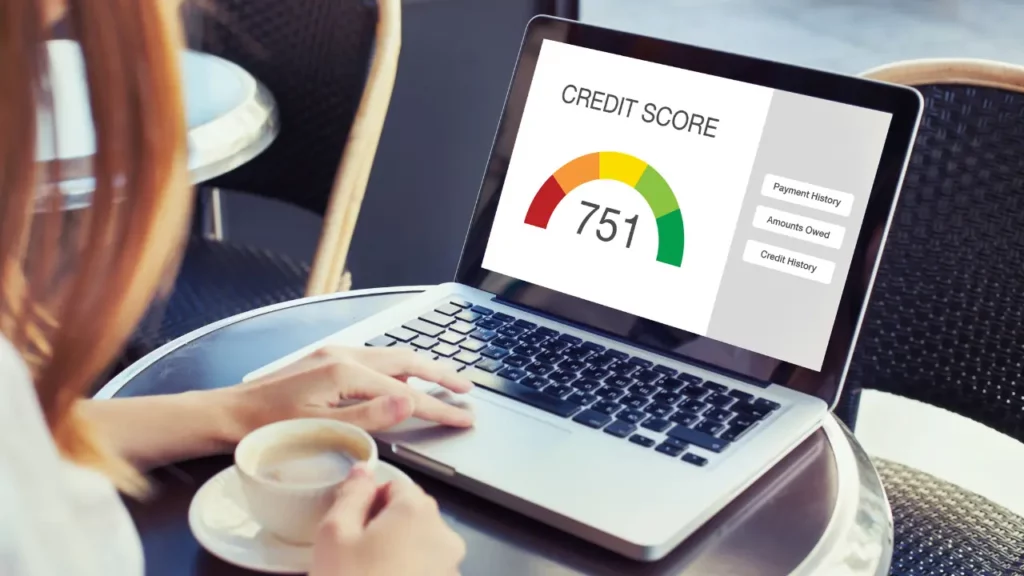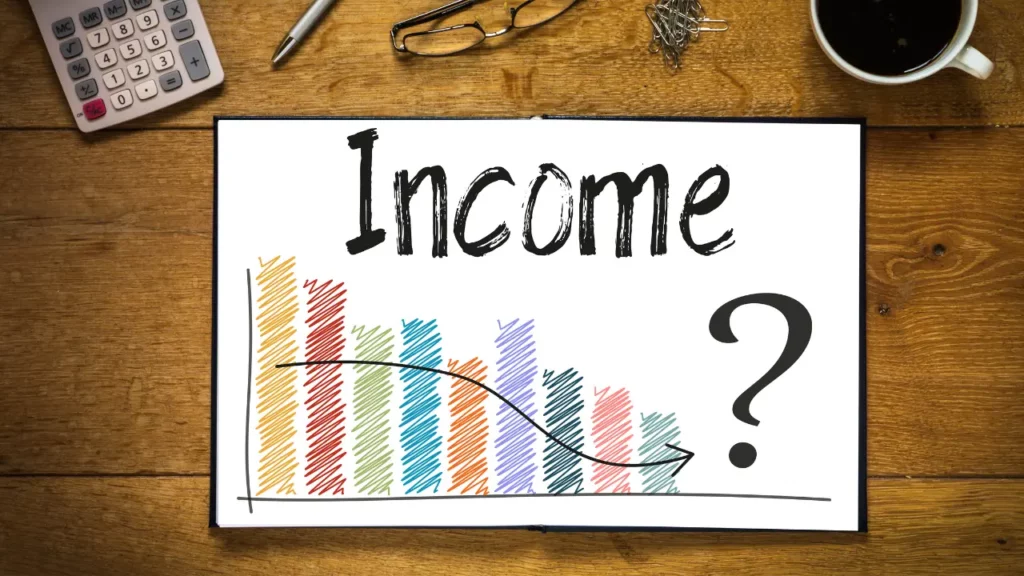Financial Requirements to Buy a House
Are you thinking about buying a house? It’s an important decision, and there are a lot of factors to consider. One of the most important is your financial situation. What are the financial requirements to buy a house? This post will outline the basics. Keep in mind that each situation is unique, so you should consult with a qualified mortgage professional and a real estate agent before making any decisions.
Qualifying Credit

When you’re ready to buy a house, the first step is qualifying for a mortgage. Lenders will look at your credit score to determine whether or not you’re a good candidate for a loan. But what is a good credit score? And how can you improve your credit score to make sure you qualify for the best mortgage possible?
What Credit Score Do I Need to Qualify for a Mortgage?
There are two main types of loans people take out when they buy a house: conventional loans and government-backed loans. Conventional loans are typically issued by banks and private lenders, while government-backed loans are issued by the government. The credit score requirements for these two types of loans differ because the risk level is different for each one.
Conventional loans tend to have stricter credit score requirements than government-backed loans because they’re not backed by the government. This means that if you default on your loan, the lender is at risk of losing money. As a result, lenders are more cautious about who they approve for a conventional loan. The minimum credit score for a conventional loan is 620, but if you have a higher credit score, you’ll likely get better interest rates and terms.
Government-backed loans are backed by the government, which means that if you default on your loan, the government will reimburse the lender. Because the government is taking on some of the risk, lenders are more lenient with their credit score requirements for these types of loans. The minimum credit score for an FHA loan (a popular type of government-backed loan) is 580. However, even if your credit score is below 580, you may still be eligible for an FHA loan if you have other compensating factors, like a low debt-to-income ratio or a high level of equity in your home.
In addition to the type of loan you’re applying for, your lender may also have their own specific credit score requirements. It’s always best to check with your lender to see what their specific requirements are before applying for a mortgage.
The bottom line is that there is no one-size-fits-all answer to the question, “What credit score do I need to buy a house?” It depends on the type of loan you’re applying for as well as the lender you’re using. However, in general, you’ll need a credit score of at least 620 to qualify for a conventional loan and 580 to qualify for an FHA loan. Remember that these are just minimum requirements – if your credit score is higher than these numbers, you may be able to get better interest rates and terms on your mortgage.
How Can I Improve My Credit Score?
One of the best things you can do is to make all of your payments on time. This includes everything from your rent or mortgage payment to your car payment and even your utility bills. You should also try to keep your balances low on any revolving accounts, like credit cards. And if you have any collections or charge-offs, try to pay those off as well.
Your credit score is one of the most important factors in qualifying for a mortgage. A good credit score is typically anything above 650, but the higher your credit score, the better interest rate you’ll qualify for. If your credit score is below 650, don’t worry – there are plenty of things you can do to improve it. Making all of your payments on time and keeping your balances low on any revolving accounts are two great ways to start.
Proof of Income and Finances

Buying a house is a huge financial commitment. As such, when you’re going through the process of applying for a mortgage, your lender is going to want to see proof that you have the income and financial stability to make your monthly payments.
This can come in the form of tax returns, pay stubs, or W-2 forms. If you’re self-employed, you may need to provide additional documentation, such as business licenses or bank statements. Your lender will use this information to determine how much money you bring in each month and whether or not you can afford to make your monthly mortgage payments.
In addition to proof of income, your lender is also going to want to see proof of your financial stability. This can come in the form of bank statements, investment account statements, or retirement account statements. Your lender wants to see that you have enough money saved up to cover your down payment and closing costs, as well as any unexpected expenses that may come up during the course of owning your home. They’ll also use this information to determine if you’re likely to default on your loan or if you’re a high-risk borrower.
If you’re planning on buying a house, it’s important to be prepared to show proof of income and financial stability to your lender. This can come in the form of tax returns, pay stubs, bank statements, and investment account statements. Your lender will use this information to determine how much money you bring in each month and whether or not you can afford to make your monthly mortgage payments. By being prepared with this documentation from the start, you can streamline the home-buying process and get into your new home that much sooner!
Down Payment

When you’re ready to buy a home, one of the first things you need to determine is how much money you’ll need for a down payment. A down payment is the portion of the purchase price that you pay upfront, and it’s an important factor in getting approved for a mortgage. Lenders typically like to see a down payment that’s at least 20% of the purchase price, but there are programs available that allow for less.
How Much Should You Save for a Down Payment?
Ideally, you should aim to have a down payment that’s at least 20% of the purchase price of the home. With a 20% down payment, you won’t have to pay for private mortgage insurance (PMI), and your monthly mortgage payments will be lower. You’ll also have equity in your home from day one, which can give you peace of mind and provide some financial security if you ever face tough times.
Of course, not everyone has the ability to save up to 20% of the purchase price of a home. If that’s the case for you, there are still options available. You can put down 10% and pay PMI until you reach 20% equity in your home, or you can look into government-backed loans like an FHA loan, which only requires a 3.5% down payment. No matter what option you choose, remember that the more money you’re able to put down upfront, the better off you’ll be in the long run.
Closing Costs
When you’re buying a house, there are a lot of costs to consider. In addition to the purchase price of the home, you’ll also need to factor in things like inspections, appraisals, and of course, closing costs. But what exactly are closing costs? Simply put, closing costs are fees associated with buying a home. These fees can be paid by the buyer, the seller, or split between the two parties.
Closing costs are fees associated with your home purchase that are paid at the close of escrow. These costs can vary based on a number of factors but typically range from 2-5% of the total loan amount.
Closing costs can have a big impact on home buyers, especially if they are not prepared for them. It’s important to factor in closing costs when budgeting for your home purchase. Some buyers choose to finance their closing costs into their mortgage in order to avoid having to come up with the cash at closing. However, this will increase your monthly payments.
If you’re not able to finance your closing costs or don’t want to, there are other options available. Many sellers are willing to contribute towards the buyer’s closing costs as part of the negotiation process. Additionally, some lenders offer programs that help buyers with their closing costs. Be sure to ask your lender about any programs they offer that could help you with this expense.
Here’s a rundown of some of the most common closing costs so that you can be prepared when it comes time to buy your dream home.
1. Appraisal Fee: An appraisal is an estimate of the value of a property. The appraisal fee covers the cost of hiring a professional appraiser to determine the value of the home you’re interested in purchasing.
2. Home Inspection Fee: A home inspection is a thorough examination of the condition of a property. The inspection fee covers the cost of hiring a professional inspector to check for things like structural damage, pest infestations, and other potential problems.
3. Loan Origination Fee: A loan origination fee is charged by the lender for processing your mortgage loan application. This fee is typically a percentage of the total loan amount and can range from 0.5% to 1%.
4. Mortgage Points: Mortgage points are optional fees that can be paid by either the buyer or seller at closing in order to lower the interest rate on the loan. One point equals one percent of the loan amount and typically lowers the interest rate by 0.125%.
5. Private Mortgage Insurance (PMI): PMI is required if you’re putting less than 20% down on a home and helps protect the lender in case you default on your loan. The premium is typically paid as part of your monthly mortgage payment but can also be paid upfront at closing.
6. Surveying Fee: A survey is used to confirm property boundaries and ensure that there are no encroachments on the property from adjoining properties or easements. The surveying fee covers the cost of hiring a professional surveyor to perform this service.
7 . Title Search and Insurance: A title search is used to confirm that the seller is indeed the rightful owner of the property and that there are no outstanding liens or judgments against it. Title insurance protects both buyers and lenders against losses resulting from title defects or challenges after closing.
8 . Transfer Taxes: Transfer taxes are levied by state and local governments on real estate transactions and are typically paid by the buyer at closing but can also be split between buyer and seller or paid entirely by the seller.
9 . Underwriting Fee: An underwriting fee is charged by the lender for reviewing and approving your loan application. This fee is typically a flat rate but can also be charged as a percentage of the loan amount.
10 . VA Funding Fee: If you’re a veteran or active duty service member, you may be eligible for a VA-backed mortgage loan. The VA funding fee helps cover losses incurred by VA-backed loans and helps ensure that these loans remain affordable for future generations of veterans.
11 . Recording Fees: Recording fees are charged by local governments for recording documents related to your real estate transaction, including deeds, mortgages, and other legal documents. These fees are typically paid by buyers at closing but can also be split between buyers and sellers or paid entirely by sellers depending on local customs.
As you can see, there are many different types of closing costs associated with purchasing a home. Some closing costs, like appraisal fees and home inspection fees, are necessary in order to get your loan approved, while others, like mortgage points, are optional. It’s important to work with your real estate agent, lender, and attorney to understand which fees apply in your situation so that you can be prepared when it comes time to close on your new home.
Debt to Income Ratio
When you’re ready to buy a house, one of the first things your lender will want to know is your debt-to-income (DTI) ratio. This simple calculation provides valuable insight into your financial health and helps lenders determine whether you’re able to afford a new home loan.
What is a Debt-to-Income Ratio?
Your debt-to-income ratio is exactly what it sounds like: the percentage of your monthly income that goes toward paying down debts. To calculate your DTI, simply add up all of your monthly debt payments and divide them by your gross monthly income.
For example, let’s say your monthly debts include a $1,000 car payment, a $250 student loan payment, and $150 in minimum credit card payments. Your monthly gross income is $3,000. In this case, your DTI would be 25% ($1,400/$3,000).
Generally speaking, the lower your DTI ratio, the better off you are financially. A low DTI ratio indicates that you have a good amount of disposable income each month after covering your debts—meaning you’re more likely to be able to afford a new mortgage payment without stretching yourself too thin.
Most lenders prefer to see a DTI ratio of 36% or less. Some government-backed loans may allow for a higher DTI ratio of up to 50%, but these are generally reserved for borrowers with exceptional credit scores.
It’s important to note that your front-end DTI ratio—which only includes housing costs like mortgage payments or rent—is usually lower than your back-end DTI ratio, which takes all debts into account. Lenders will usually focus on your back-end DTI when reviewing your loan application.
To give you an idea of where you stand, here’s a quick breakdown of acceptable DTI ratios by loan type:
* Conventional Loans: 28% front-end / 36% back-end
* FHA Loans: 31% front-end / 43% back-end
* VA Loans: 41% front-end / 41% back-end
Your debt-to-income (DTI) ratio is an important number when it comes time to apply for a home loan—but it’s not the only factor lenders will consider when reviewing your application. By staying mindful of your finances and taking steps to improve things like your credit score and employment history, you can increase the chances of getting approved for the home loan you need.
Real Estate Agent

You’ve finally saved up enough for a down payment, and you’re ready to buy your first home. Congratulations! The next step is finding a real estate agent to help you through the process. But how much does a real estate agent cost?
The simple answer is that real estate agents don’t charge a fee to buyers. In fact, in most cases, the seller pays the commission, which is then split between the listing agent and the buyer’s agent. So, as a buyer, you can use a real estate agent’s services without having to pay anything out of pocket.
If you would like to learn more about the benefits of using a real estate agent when buying a home, check out this post.
So what does it take to buy a house in today’s market? A good credit score, proof of income and finances, down payment, closing costs, and a low debt-to-income ratio. If you can meet these requirements, you are on your way to becoming a homeowner. Our team at Bernie Gallerani Real Estate is here to help you every step of the way. Contact us today to get started on your home-buying journey!
Our team has sold thousands of homes throughout Middle Tennessee. Even if you are looking outside of Middle Tennessee for a home, contact us, and we can give recommendations for some of the top real estate agents throughout the country.
